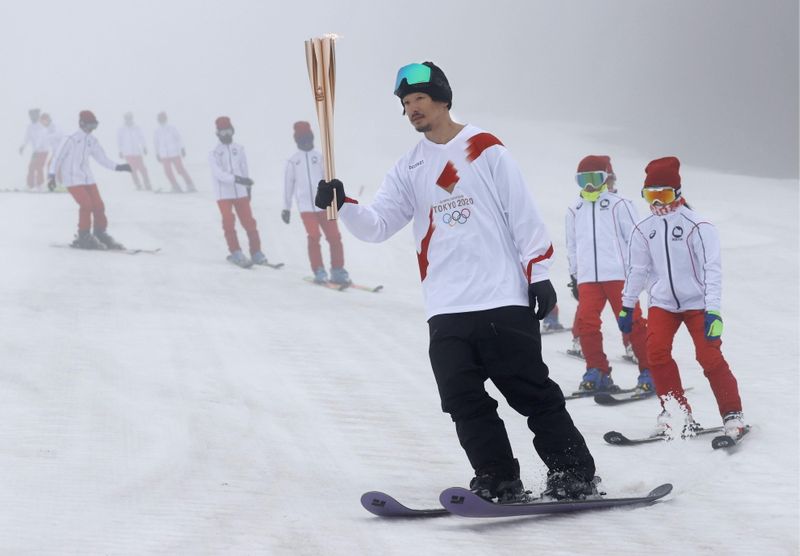By Kiyoshi Takenaka
FUKUSHIMA, Japan (Reuters) - When Olympic torch runners came to Fukushima city on Friday, Masahiro Abiko went out to cheer them with his employees, hoping the Games will reinvigorate his coronavirus-battered business making flags and festival attire.
"Ever since the onset of the coronavirus pandemic, festivals and other events have just evaporated. Orders for happi (half coats used for festive events) fell not by half, not by two-thirds, but by nine-tenths," Abiko told Reuters.
"I want the Olympics to be held no matter what."
The torch relay began on Thursday and has been through other parts of Fukushima prefecture before travelling to its capital.
Abiko echoes the hopes of business owners across Japan, hit by travel restrictions and curbs on eating out.
The Tokyo Olympics had originally been scheduled for 2020, but were postponed for one year because of the pandemic.
Abiko, who has 27 employees engaged in dyeing, sewing and ironing, is already witnessing signs of recovery.
"With the Olympics approaching, we are seeing demand for flags, Japan's national flags and those of foreign countries, rising. It's not quite doubling, but a substantial increase," he said.
Toshiya Fushimi, who has seen sales at his coffee shop drop by more than half since the pandemic began, is less hopeful about the Olympic effect.
"I was expecting foreign visitors to come to Fukushima, spend a few nights and go shopping. But the situation has changed, and that is a little disappointing," Fushimi said.
Some Olympic baseball and softball games will take place in Fukushima city, raising the hopes of local businesses, but international spectators will not be allowed to visit Japan for the Games.
Still, those events will give Abiko, who forgot to bring national flags made by his company to the torch relay, a chance to put things right.

"Of course I'm planning to go and watch the games. When I do that, I'll make sure to bring the national flags we dyed," Abiko said, grinning.